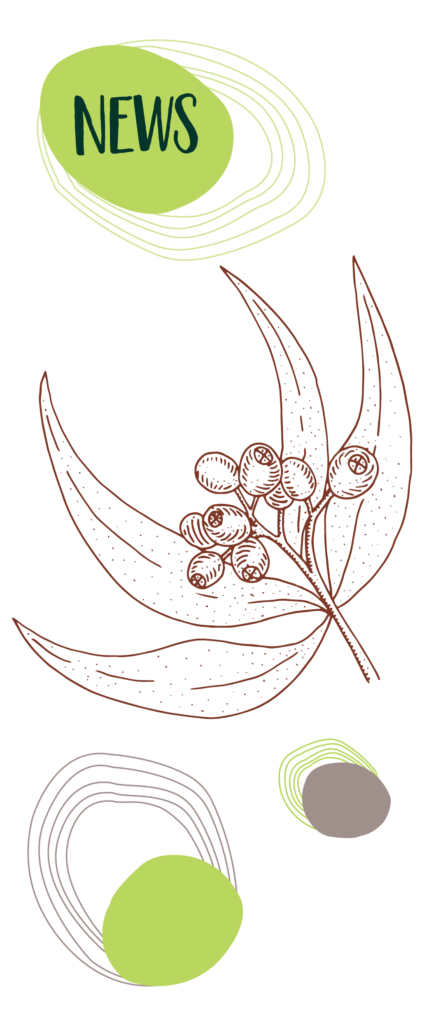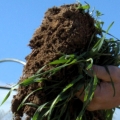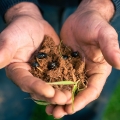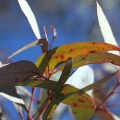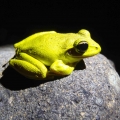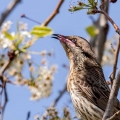Science to make you squirm!
Published 14th October 2022. Written by Maddison O’Brien
A parasitoid is an organism that lives on or within a host organism, eventually killing it. The thought of this might make you squirm, but parasitoids can be essential players in ecosystems by controlling insect populations. More recently, their parasitic ways are being closely studied for use as biological controls for pest species.
Whereas insect predators immediately kill or disable their prey, pests attacked by parasitoids die more slowly. Some hosts are paralysed, while others may continue to feed or even lay eggs before succumbing to the attack. Parasitoids, however, often complete their life cycle much more quickly and increase their numbers faster than many predators making them ideal candidates for biological control. Parasitoids can be the dominant and most effective natural enemies of some pest insects, but their presence may not be obvious and need to be closely studied to be understood.
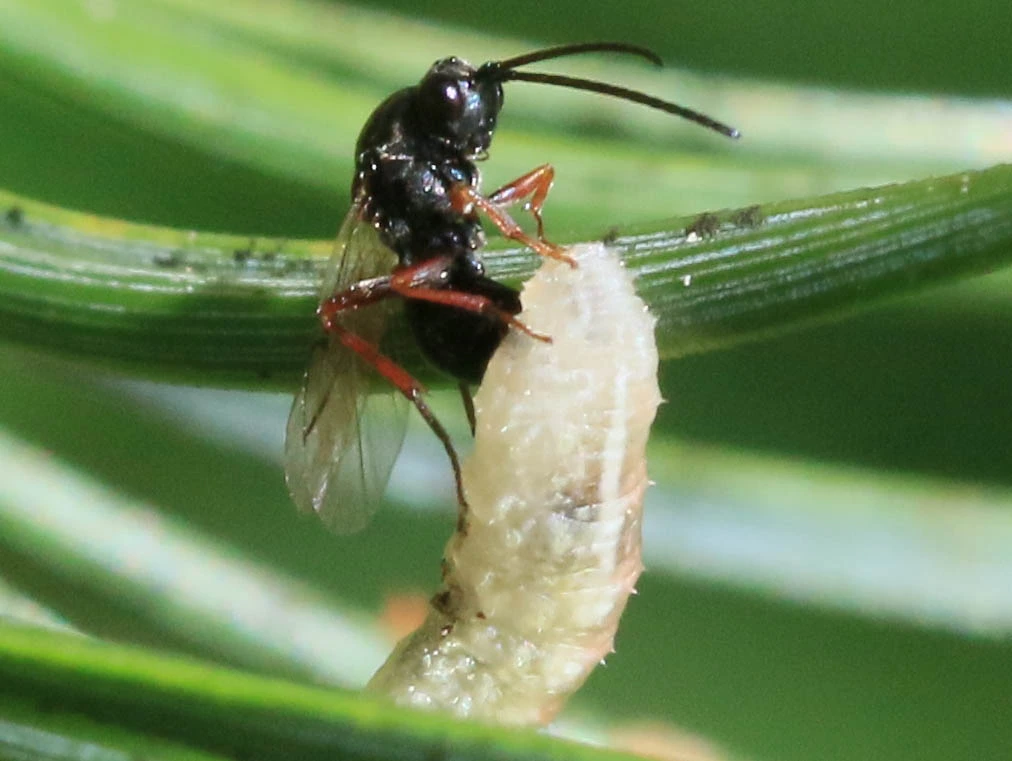
Parasitic wasp laying eggs in a hoverfly larva
The most beneficial insect parasitoids are wasps or flies. In North America, scientists have been observing two species of wasps and their lethal attention to the introduced fruit fly known as spotted-wing drosophila, which has cost more than $700 million in crop damage annually since its arrival in 2008. As the devastating fruit fly has impacted food growers worldwide, these wasp species are being further studied as candidates for introduction in other countries.
Closer to home, Scion scientist Stephanie Sapow is a finalist in this year’s New Zealand Biosecurity Awards for helping to discover a parasitic wasp from Canada that specifically targeted the pest Giant Willow Aphid. The pest aphid has caused immense damage to Willow trees and affected soil stability and the beekeeping industry since its detection in 2013. After many years of research, the wasp has been introduced with impressive results. Monitoring detected the proportion of aphid-free trees at study sites increased from 30 per cent at initial release to 86 per cent two years later.
Cesar Australia is currently investigating parasitoids that target the passion vine hopper in Australia to identify a biological control for introduction to New Zealand. During this research, Dr Samantha Milward and the team have uncovered a greater range of parasitoids than was ever expected. These discoveries demonstrate how much we have to learn from these creatures and highlight scientists’ vital work to uncover their mysteries.
These developments are positive steps forward to addressing food security and integrated pest management. Parasitoids (such as the rampant Varroa mite) can have devastating impacts, but they can also be utilised to restore balance and increase yields. On a smaller scale, you can encourage wasps to control caterpillars, flies, crickets and beetles in your garden.

